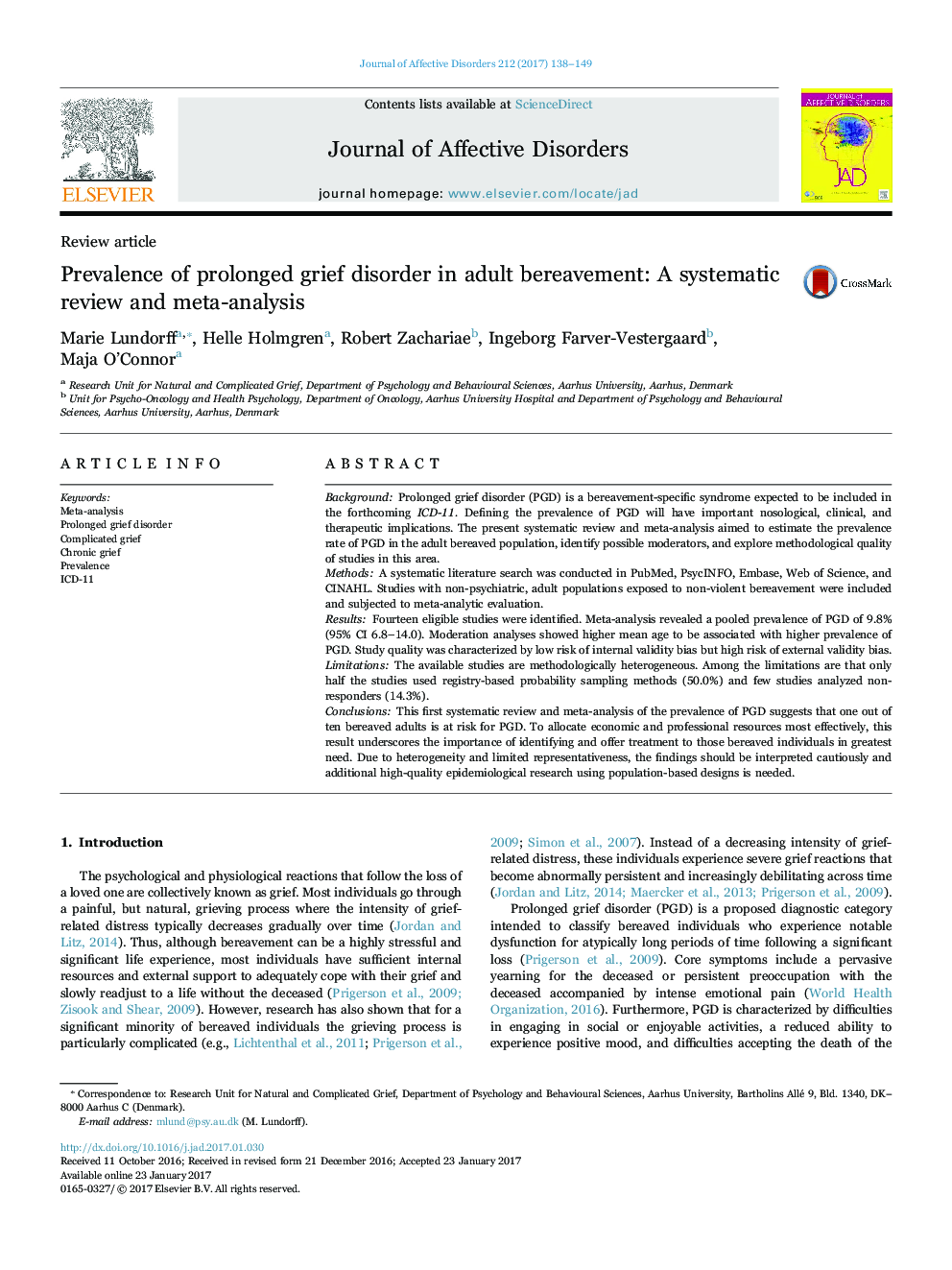| Article ID | Journal | Published Year | Pages | File Type |
|---|---|---|---|---|
| 5722435 | Journal of Affective Disorders | 2017 | 12 Pages |
â¢Prolonged grief disorder (PGD) is expected to be included in ICD-11.â¢A systematic literature search identified 14 eligible studies on PGD prevalence.â¢Meta-analysis revealed a pooled prevalence of PGD of 9.8% (95% CI 6.8-14.0).â¢A high level of heterogeneity and limited representativeness were found.â¢Additional high-quality research using population-based designs is needed.
BackgroundProlonged grief disorder (PGD) is a bereavement-specific syndrome expected to be included in the forthcoming ICD-11. Defining the prevalence of PGD will have important nosological, clinical, and therapeutic implications. The present systematic review and meta-analysis aimed to estimate the prevalence rate of PGD in the adult bereaved population, identify possible moderators, and explore methodological quality of studies in this area.MethodsA systematic literature search was conducted in PubMed, PsycINFO, Embase, Web of Science, and CINAHL. Studies with non-psychiatric, adult populations exposed to non-violent bereavement were included and subjected to meta-analytic evaluation.ResultsFourteen eligible studies were identified. Meta-analysis revealed a pooled prevalence of PGD of 9.8% (95% CI 6.8-14.0). Moderation analyses showed higher mean age to be associated with higher prevalence of PGD. Study quality was characterized by low risk of internal validity bias but high risk of external validity bias.LimitationsThe available studies are methodologically heterogeneous. Among the limitations are that only half the studies used registry-based probability sampling methods (50.0%) and few studies analyzed non-responders (14.3%).ConclusionsThis first systematic review and meta-analysis of the prevalence of PGD suggests that one out of ten bereaved adults is at risk for PGD. To allocate economic and professional resources most effectively, this result underscores the importance of identifying and offer treatment to those bereaved individuals in greatest need. Due to heterogeneity and limited representativeness, the findings should be interpreted cautiously and additional high-quality epidemiological research using population-based designs is needed.
